The Madina Project
Across Africa, Christians and Muslims live in shared communities and neighbourhoods, defining themselves in distinction to each other and at times engaging in heavy, violent conflicts, but also being entangled in complicated ways and showing unexpected similarities. There are many multi-religious families, and people art part of multi-religious networks in their neighborhoods, in schools, and community associations and political groups. In current scholarly research on religion in Africa, the study of Christianity and the study of Islam are thriving. But alas so far, notwithstanding some laudable initiatives, these study fields still exist more or less independently from each other. While encounters and entanglements of indigenous religion with either Christianity or Islam have long been a central research issue, the configuration as a whole has barely been taken into account, even though Christians, Muslims and traditionalists have co-existed – and still co-exist – more or less peacefully in many contexts in Africa, including Ghana. Started in July 2017, the Madina-project explores the historical and contemporary modalities of this co-existence in the multi-religious and multi-ethnic suburb Madina, Accra, over a period of five years. Founded in 1959, the sprawling and lively community of Madina is located in the Eastern part of Accra, near the campus of the University of Ghana, Legon, and hosts a population of more than 130.000.
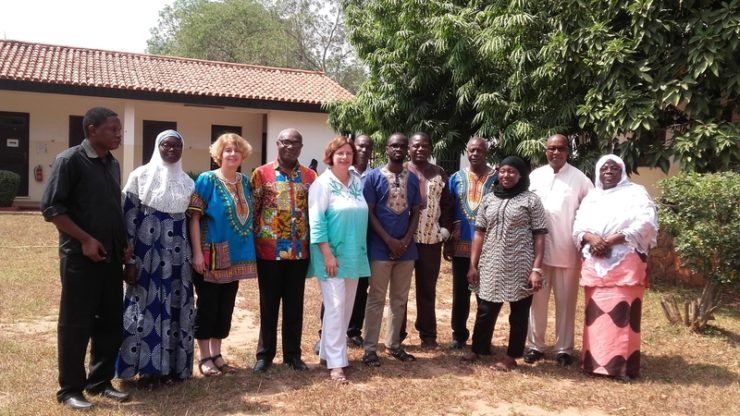
The Madina team in Ghana, 2018.
The Madina-project is a new joint research initiative within the Religious Matters program that involves scholars from the University of Ghana (African Studies, Religious Studies, Sociology), Trinity College and the Department of Philosophy and Religious Studies at Utrecht University (Martha Frederiks and Birgit Meyer), and takes place in collaboration with the African Studies Centre at Leiden University. The senior scholars involved in Ghana are Rabiatu Ammah, Kwabena Asamoah-Gyadu, Johnson Mbillah, Samuel Ntewusu and Kodjo Senah. The Phd students are Rashida Adum-Atta, Joseph Fosu-Ankrah, Martin-Luther Darko and Kauthar Khamis; their research profiles and projects are introduced under Team.
The central concern of the Madina-project is to explore modalities of co-existence of Christians and Muslims (as well as people devoted to African religion more or less openly) in Madina Zongo – the quarters hosting (Muslim) strangers – and beyond. We understand co-existence as “living together” – the Dutch term “samenleving” (society) emphasizes this dimension – and are interested in the question how this living together occurs on a practical level, how conflicts are contained and dealt with in such a way that some degree of conviviality is achieved. Focusing on everyday life, we are interested in how people actually do co-existence. This means taking into account practices of relating to and acknowledging each other, as well as rules and regulations on the part of the state and municipality, religious authorities and traditional institutions. While we pay due attention to religious affiliation, we also take into account that faith is not the sole marker of people’s multiple identities. Our research on co-existence focuses on certain sites, events and encounters in which Muslims and Christians interact from a material angle, including health-seeking behavior (Kodjo Senah, Martin-Luther Darko), contested spaces (Joseph Fosu-Ankrah), the market and practices with regard to the sale and purchase of food in the light of religious preferences and taboos (Rashida Adum-Atta), everyday relations between Muslim and Christian women (Kauthar Khamis), education and the role of religion in public, Muslim and Christian schools (Rabiatu Ammah, Birgit Meyer), as well as Christian mission activities among Muslims (Martha Frederiks). Samuel Ntewusu works on the history of Madina, and Kwabena Asamoah-Gyadu on the shaping of Muslim-Christian relations in Southern Ghana in a broader sense. As an expert on Muslim-Christian relations in Africa, Johnson Mbillah acts as advisor. The project will yield individual chapters, articles, books and four dissertations, as well as a joint volume. As a vital part of the Religious Matters in an Entangled World programme, the research of the Madina project seeks to offer insights into the dynamics of co-existence from an African angle and takes part in various activities of the programme.
Senior Team members:
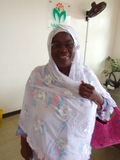
Rabiatu Deinyo Ammah is a Senior Lecturer in Islamic Studies at the Department for the Study of Religions, University of Ghana. She studied at the Centre for the Study of Islam and Christian-Muslim Relations, Selly Oak Colleges, Birmingham and obtained both her MA and PhD in Theology from the University of Birmingham, England. Since 1990, she has taught several courses among which are: History of Islam, Muslim Family Law; Islamic Law; Gender Issues in Religion and Culture; Islam and Development at both undergraduate and graduate levels at the Department for the Study of Religions. A member of The Circle of Concerned African Women Theologians, Dr. Rabiatu Ammah’s research interests are in “Empowerment of Muslim Women in Ghana” and “Women and Interfaith Relations.” For the Madina Project the focus lies on building relationship for co-existence among children. Her publications address topics as Christian-Muslim relations in Africa and Ghana, the role of Muslim women in interfaith encounters, and voices of Ghanaian Muslim Women in preaching(dawah).
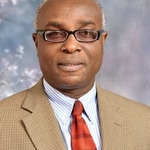
J. Kwabena Asamoah-Gyadu is a professor of Christianity in Africa and Pentecostal Studies at the Trinity Theological Seminary, Legon, Ghana. He has degrees in Sociology and the Study of Religion from the University of Ghana and a doctoral degree in Theology from the University of Birmingham, UK. His areas of research interest are contemporary religion in Ghana, including Pentecostal/charismatic movements, and religion, media and culture in African societies. He is the Director of the Center for the Study of Christianity in Africa at the Trinity Theological Seminary, a Fellow of the Ghana Academy of Arts and Sciences and has taught in several international universities across the world.
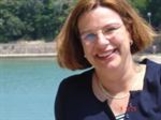
Martha Frederiks is Professor for the Study of World Christianity. She studied Theology and Islamic Studies at Utrecht University and at the Duncan Black MacDonald Institute in Hartford CT, USA and from 1993-1999 lived and worked in West Africa in the field of Christian Muslim Relations. She obtained her Ph.D. from Utrecht University (2003, cum laude) with a study on the History of Christianity in The Gambia. Her research foci include the history of Christianity and Christian Muslim encounters in West Africa. She was involved in the European Norface research-project Recognising Christianity. How African Immigrants redefine the European Religious Heritage. She currently serves as team-leader for Africa and the Americas in the Christian Muslim Relations, a bibliographical history 1500-1900 and is involved in the Madina Project. For more details and a list of publications, click here.
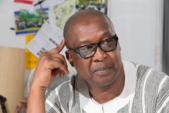
Johnson Mbillah is the immediate past General Adviser for the Programme for Christian-Muslim Relations in Africa (PROCMURA). He had his theological education at Trinity Theological Seminary, Accra, Ghana, and Selly Oak Colleges in Birmingham, UK, respectively. He holds a Post-Graduate Diploma (1988) MPhil (1990) and PhD (1999) in Islamic Studies at the Centre for the Study of Islam and Christian-Muslim Relations, Selly Oak and University of Birmingham, UK. Before working as General Adviser of PROCMURA (2000-2017), he worked as Regional Coordinator for Anglophone West Africa and Area (country) Adviser for Ghana in the field of Christian-Muslim relations. He is currently engaged in writing a book on guidelines for Christian-Muslim relations in Africa and conducts research on the politicisation of religion and religionisation of politics in Africa.
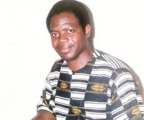
Samuel Ntewusu (coordinator) holds a PhD in History from the University of Leiden, The Netherlands, and an Mphil in African Studies from the University of Ghana. Since August 2011, Ntewusu has worked as research fellow at the Institute of African Studies, University of Ghana. He teaches Chieftaincy and Development in Africa (undergraduate course), and in collaboration with other lecturers, handles the following post-graduate courses: The Slave Trade and Africa, African Historiography and Colonial Rule and African Responses. His research focuses on chieftaincy and development, the history of Accra with special attention to Muslim settlements, social transformations in Northern Ghana, and the impact of German colonialism in Northern Ghana. In the context of the Madina Project he will work on the history of Madina.
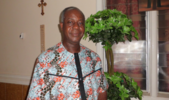
Kodjo Senah is Associate Professor in the Department of Sociology in the University of Ghana, Legon. He obtained his B.A (Hons) and MPhil degrees from the University of Ghana in 1974 and 1981, respectively and his PhD from the University of Amsterdam, The Netherlands, in 1997. His PhD thesis focused on the indigenization of pharmaceuticals in a Ghanaian coastal community. Kodjo Senah is in his 33rd year as a lecturer in the Department of Sociology in the University of Ghana. His teaching, and research interests and publications are in the areas of Medical Sociology/Anthropology, Rural Development, Criminology and Heritage Studies (Chieftaincy in Ghana). His current research interest focuses on religion and healing and sanitation (scatology). In the context of the Madina Project and will focus on the role of Islamic healers (Mallam) in promoting religious co-existence in Madina and its environs.
Birgit Meyer (coordinator)
PhD-students:
Overview of blogs written by Madina participants
In order of appearance on Religious Matters
Khamis, Kauthar. ”God in the beauty salons of Madina Zongo” (video) (February 2021)
Luther Darko, Martin- ”Lives versus Livelihoods””: The Narrative Behind Ghana’s Lockdown (June 2020)
Fosu-Ankrah, Joseph – Pandemic, Prophets, and Politics: Religio-satirical framing of Fear in the midst of ‘Corona’ in Ghana (May 2020)
Alhassan Adum-Atta, Rashida – Covid, Food and Ramadan in Madina, Ghana (May 2020)
Ntewusu, Samuel Aniegye and Samuel N. Nkumbaan – Fighting Covid-19: Interventions from Ghana’s Traditional Priests (May 2020)
Khamis, Kauthar – Waiting for God in Times of Covid-19: the case for ‘quarantined’ beauty parlours in Madina Zongo (May 2020)
Alhassan Adum-Atta, Rashida – Starring food in Madina market (April 2020)
Kwabena Asamoah-Gyadu, J. – Dealing with a Spiritual Virus: Whither the Prophetic? (April 2020)
Alhassan Adum-Atta, Rashida – European pig feet in a multi-religious market (October 2019)

